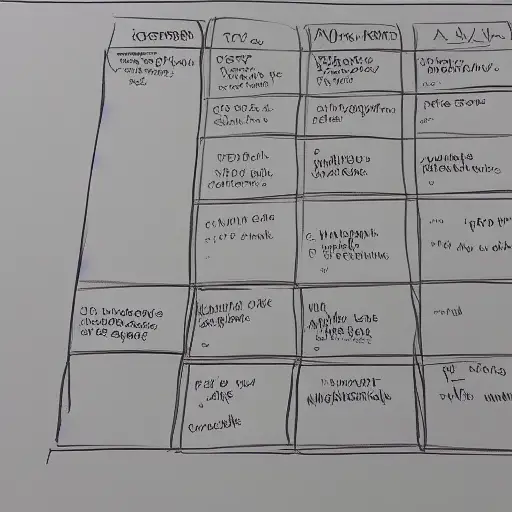Working as a professional organizer can be a rewarding career. This profession can be self-employed or employed by a traditional company. It is not necessary to have specialized training, and you can choose to work with individuals, home-based businesses, or a combination of both. As a professional organizer, you can provide ongoing services to your clients, sell your services as a service, and gain satisfaction from helping others.
Career outlook
Career opportunities for professional organizers are increasing, mainly because more people need help with organizing their personal and professional lives. They often work out of their own homes or offices, spending the majority of their time designing organizational plans and meeting with clients. They also negotiate with suppliers and undertake other administrative tasks. If you want to become a professional organizer, you’ll need to go through training, such as taking Time to Get Organized courses.
Professional organizers must possess strong communication skills and a professional demeanor. They should also have the ability to work independently when necessary. They must also be physically fit, as they often handle large organizing projects. The income of professional organizers varies greatly, and it depends on their experience and geographic area.
Professional organizers teach people how to become organized and enhance their lives. They may work with individuals who are overwhelmed by clutter, or with businesses that need help organizing inventory. These professionals often have a background in social work or design, and they develop plans that will help their clients achieve their goals. They may also provide emotional support for their clients during the process of change.
Organizing work can be performed on-site, or on the road, as required. Although travel time and expenses can be more expensive, on-site work allows you to see all the components of a project. On-site work can also help you understand a client’s organizational strengths and weaknesses.
Professional organizers need to be well-organized and have excellent communication skills to attract clients. However, it doesn’t necessarily require a college degree to work as a professional organizer. In addition to education, you can take up certifications and licenses. The National Association of Professional Organizers has a list of members and will provide you with the names of organization consulting firms in your area.
Job duties
A professional organizer’s job duties can vary widely depending on the area they specialize in and the type of organizing they perform. Some specialize in the needs of children or seniors, while others focus on office spaces or legal or medical offices. Many professional organizers also sell products or offer seminars. Regardless of the type of organizing, these professionals need a strong commitment to provide top-quality service.
Organizers also need to be good communicators. This means that they must be able to explain their services and what they can expect from them. Sometimes, this means attending networking events and communicating with clients about what they want. In addition, a professional organizer must be able to develop organizational tools that will meet the needs of their clients and work well for them.
Another important skill for a professional organizer is being able to solve problems. They must be able to break down large problems into small ones. They must also be able to find creative solutions to mundane problems. A professional organizer needs to be able to be pro-active both in their professional and personal lives.
A professional organizer can help individuals and businesses get their homes and workspaces in order. Their services can range from putting together a filing system to organizing paperwork for a small business. They may also help clients arrange their furniture. Professional organizers often have backgrounds in social services and design. They work closely with clients to understand their needs and preferences, and will design a plan that will help them achieve their goals. They can also provide emotional support during the process of change.
A professional organizer can work on-site or from home. They can also rent office space downtown. However, most of these individuals work independently. To attract clients, they must be professional, friendly, and approachable. Professional organizers also need to be able to provide references. A professional organizer should also be detail-oriented and possess good management skills.
A professional organizer can work with people of all ages. They can help young children to seniors, and they can work with organizations with diverse needs. However, the type of organizing they do is highly dependent on their skills. A professional organizer must also be able to handle multiple projects at once.
Cost
The cost of hiring a professional organizer will depend on the scope of the project and the level of expertise needed. Some organizers have a wide range of experience and specialize in different areas. The rate for hiring a professional organizer will also depend on how much involvement you want to have with the process. You should also make sure you have plenty of time to work with the organizer.
While the costs of hiring a professional organizer vary considerably, they are usually comparable to the fees of other professionals in the industry. For example, a less experienced organizer might charge $35-$100 per hour, while a more experienced organizer may charge up to $125 per hour. The cost of hiring a professional organizer will also depend on the complexity of the project. Many organizers offer packages for different types of projects. These packages are usually more expensive up front, but they will save you money in the long run.
Professional organizers charge per hour or per project. The rates vary depending on the organizer’s expertise, the size of the project and the number of hours they spend working on it. Typically, hourly rates run from $50-$60 per hour, but higher rates may apply for jobs that involve coordination and a higher number of hands.
Professional organizers also charge extra for interior decoration. While most home organizing projects require four to five hours, larger projects can take up to a week. Depending on the size of the project, a professional organizer may charge more for a multi-room project or a whole house organization. Hiring a professional organizer is a wise choice for those who are in a time crunch and don’t have the time to tackle their own organizing project. They can help you create organization systems that work best for you and your family.
Depending on the scope of the project, hiring a professional organizer may cost between $250 and $450. Depending on the organizer’s experience, the price may be a one-time consultation or a monthly rate.












